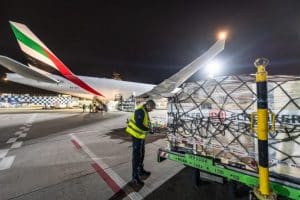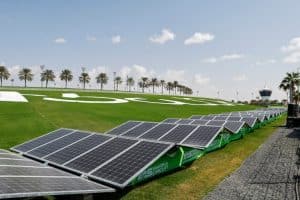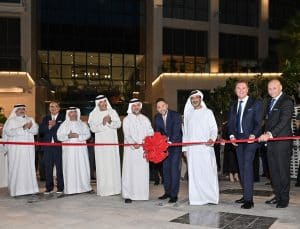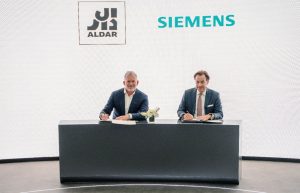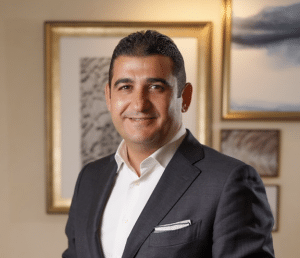
Abu Dhabi National Oil Company (ADNOC) is collaborating with Wintershall, Germany’s largest internationally active oil and gas producer, and Austria’s OMV company for exploration and evaluation of Shuwaihat field.
In this spirit, Wintershall, the Abu Dhabi National Oil Company (ADNOC) and Austria’s OMV company signed an agreement in June 2012 to appraise the Shuwaihat sour gas and condensate field. As the operator Wintershall will be responsible for the technical appraisal and development of the field.
The Shuwaihat field is situated in the western region of Abu Dhabi, about 25 kilometers west of the industrial town of Ruwais. A successful evaluation and subsequent production could make Shuwaihat one of the most important natural gas and condensate fields in the western region of Abu Dhabi, the ADNOC said in a statement on the final day of ADIPEC 2014 here at ADNEC.
It would also help to meet the increasing demand for mineral hydrocarbons in the United Arab Emirates and contribute to the country’s long-term export capabilities, read the statement.
The reservoir evaluation includes up to three field appraisal wells and a 3D seismic survey. Since spring 2014, work has been underway on the first onshore well (SH 5).
The two other wells (SH 6 and SH 7) will be drilled offshore. The wells will be drilled to a depth of about 4,000 meters. The offshore drilling and the seismic survey are scheduled to take place in the next few years.
The Shuwaihat field places particularly high demands on the exploration and production. The sour gas within the reservoir contains about 20 percent hydrogen sulfide and about seven percent carbon dioxide – two highly corrosive substances that can damage the pipes and production equipment. In addition, hydrogen sulfide is already highly toxic at concentrations of just around 0.05 percent. Each sour gas production program therefore requires a high degree of safety and high-tech equipment.
As a technology-driven E&P specialist, Wintershall can draw on more than 40 years of experience in producing sour gas in Germany. For example, Wintershall has already developed 16 fields in Germany and recovered about 30 billion cubic meters of sour gas. Wintershall is also applying this know-how in appraising the Shuwaihat field: for example, pipes made ??of special steel, numerous shut-off valves on the drilling rig and gas detectors prevent hydrogen sulfide from escaping in an uncontrolled manner. Wintershall has mounted 20 of these detectors directly along the fence surrounding the drilling site. Another 24 radio-controlled detection stations surround the site at distances of 500 and 1,000 meters. Each of these contains three different sensors that are not only able to detect sour gas but also sulfur dioxide and methane.
By means of extensive risk analyses, potential hazards are also identified that provide the basis for determining corresponding safety measures, emergency plans, training sessions and equipment specifications.
In case of production the downstream production plants must also be tailored to the specific properties of sour gas and associated challenges: a cleaning plant first of all removes the hydrogen sulfide from the gas using the OASE gas treatment technology developed by Wintershall’s parent company, BASF. The methane produced is fed into the national pipeline network. The hydrogen sulfide is then transformed into sulfur dioxide in a so-called Claus plant and then into pure sulfur, which is sold as a raw material for the chemical industry.
Based on decades of experience, Wintershall continues to rely on innovation and high-tech expertise in the production of sour gas. In this spirit, BASF and the Petroleum Institute in Abu Dhabi agreed at the end of 2013 to enter a research collaboration to develop environmentally friendly methods for removing corrosive sulfur compounds from sour gases.
The joint research will focus on methods that consume as little energy as possible. These include, for example, absorbents that can bind certain molecules to them through physical interactions, The specific results of the collaboration between the Petroleum Institute and BASF could be utilized in a possible development of the Shuwaihat field, the ADNOC statement concluded.
Source : WAM News Agency for United Arab Emirates


